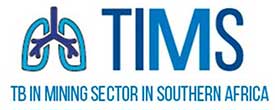Intervention(s) & Key Activities
The focus of the community systems strengthening will be on strengthening community-based monitoring and the use of data collected from this process to promote accountability and inform the development of a human rights violations reporting systems led by key populations.
Intervention 1: Community-led monitoring
TIMS 1 prioritized surveys that generated evidence to inform the development of interventions for the regional response to TB in the mines. TIMS 2 prioritized the use of the recommendations of the surveys and toolkits to improve TB service delivery to mineworkers including supporting actual TB screening. In both phase 1 and 2, key populations were not adequately. To address this gap, TIMS 3 prioritizes the development or adoption of a community led monitoring (CLM) tool which will be used by key populations (mineworkers) to report on human rights barriers violations and access to and quality of TB services among other issues. The CLM will be an independent tool primarily for affected communities or beneficiaries to use to report on services. The CLM tool will also include the monitoring of gender-sensitive service provision and monitoring of gender-specific barriers to access to TB services.
An assessment of existing CLM tools in the Southern Africa countries for TB program will be carried out and an appropriate tool will be adapted or a new one will be developed that addresses TB and Occupational Health issues facing mineworkers. The tool will be implemented in six countries selected based on the type of mining industry – large mining, small formal mining, ASM and having migrant mineworkers. Data generated from the CLM tool will be used to complement data reported by countries to the regional dashboard and will be utilized to develop people-centred strategies.
Funds are requested to:
- Support technical assistance to set up and convene meetings of the CLM technical team that will guide the selection and design of the CLM tool and develop its implementation approach. Members of this team will be drawn from countries and will include key populations and civil society organisations.
- Support technical assistance to design the CLM tool and implementation guidelines. The tool to be adapted or developed will have to collect data for the selected CLM indicators
- Provide technical assistance to countries to build capacity of CLM implementers. Given that CLM is an independent process for beneficiaries or affected communities to monitor and report services, the training will prioritize these communities and beneficiaries. Other stakeholders supporting the process such as NTP staff and civil society organisations involved in implementation will also be trained.
- Convene country meetings to act on the CLM data to bring about change required in availability, quality, affordability and accessibility of TB-related services for the mining community.
- Convene regional meetings of countries to review data from CLM and recommend people-centred strategies
Intervention 2: Social mobilization, building community linkages and coordination
The participation of the KP organisations in the governance of the TIMS programme at regional level and programming at country level has been inadequate, the KP organisations lack a platform to mobilize their members to deliberate on their concerns and also have inadequate skills to participate in some of the technical aspects of TIMS programming. This funding request will strengthen the capacity of KP organisations to engage in advocacy and programming at country and regional level and meaningfully participate in regional governance structures. KP organisations include ex-mineworker associations, labour unions, ASM associations among others.
Funds are requested to:
- Train KP organisations on human rights evidence-based advocacy, policy dialogue and programming
- Support KP organisations to attend regional and country level meetings to engage with national stakeholders (government and private sector) on strategies for mitigating human rights violations and improving access to TB and occupational health services
Priority Population(s) and geographical scope
- Mining communities – Mineworkers in large mines, ASM communities, peri-mining communities, ex-mineworkers and their families
Barriers and Inequities
- Limited data on human rights and gender barriers to TB services and violations affecting mining communities
- Limited availability of client centred services responsive to the needs of mining communities
Rationale
Data available on the TB and OH services in the mining sector is from service providers. This data presents the results of services provided by government and to some extent private sector. Data on the client satisfaction with services and the challenges mining communities face in accessing TB and OH services is limited. The CBM intervention aims at closing this gap.
Expected Outcome
- 100% (6) selected countries provide community-based monitoring reports at least one annually
